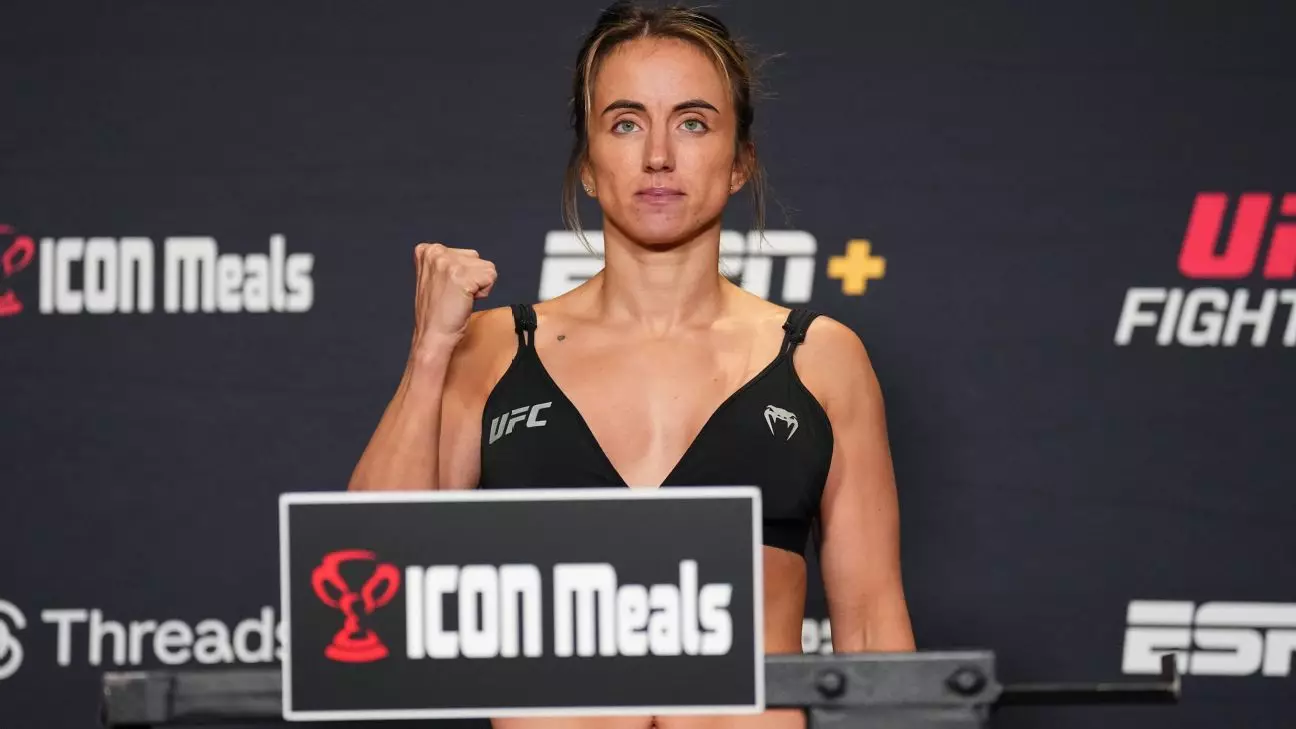The excitement surrounding the UFC Fight Night in Las Vegas quickly evaporated when the highly anticipated main event was abruptly canceled mere moments before the fighters were set to enter the cage. Maycee Barber was deemed medically unfit to compete against Erin Blanchfield, sending shockwaves through fans and fighters alike. While cancellations are an unfortunate reality in combat sports, the circumstances surrounding Barber’s absence offer an important reflection on resilience and the often harsh realities athletes face.
Barber’s battle with injury and illness, which led to a year-long hiatus from the octagon, resonates with many athletes who experience both physical and mental setbacks. Having reportedly spent 11 days hospitalized, her journey back to fighting shaped the expectations and excitement for the matchup. Yet, her failure to make weight by half a pound further complicated her return to the sport, leaving fans and analysts questioning whether her readiness to compete was compromised. The decision to withhold from the fight underscores the delicate balance athletes must maintain between ambition and well-being, revealing the hidden battles that go beyond the public eye.
The Frustration of the Fighters
Blanchfield, who was set to capitalize on the opportunity for a prominent victory, described her disbelief upon learning of the cancellation mere moments before she was to step onto the canvas. The demeanor of UFC Chief Business Officer Hunter Campbell upon entering her dressing room hinted at the gravity of the situation, shifting the thrill of competition to a stark realization of loss in opportunity. The frustration is understandable; athletes train tirelessly, cultivating momentum only to have their aspirations prematurely halted due to circumstances beyond their control.
Failing to reschedule the fight has left Blanchfield not only disappointed but determined. Expressing her desire for another five-rounder against a ranked opponent, she highlighted the competitive nature of the sport, directly challenging the notion of ‘waiting’ for Barber to recover. Blanchfield’s conviction that she should focus on opponents who can elevate her standing in the sport is not merely an expression of ambition but smart strategy. In a division that requires constant progression, playing it safe is not an option for fighters aiming for championship gold.
Reflection on Fighter Management
The UFC holds a remarkable position as an influencer in shaping public discourse surrounding athlete management and support. Barber’s candid struggles and Blanchfield’s immediate reactions spotlight the organization’s responsibility to prioritize fighter health and safety. Athletic competition is inherently dangerous; thus, it is crucial for governing bodies and promotions to ensure that athletes are not just willing but fully capable of competing.
In this evolving landscape, discussions about fighter well-being should extend beyond pre-fight medical checks and into long-term health plans that account for both physical injuries and mental wellness. The sport needs to continue its strides towards creating an environment that fosters not only fierce competition but also support and recovery for all fighters involved.
By reframing the narrative around such cancellations, fans and management alike can better appreciate the resilience of fighters, which is often obscured by the excitement of combat. Ultimately, this incident serves as a stark reminder of the fragility of athletic contests and the ongoing need for vigilance and empathy within the promotional realm of the UFC.

